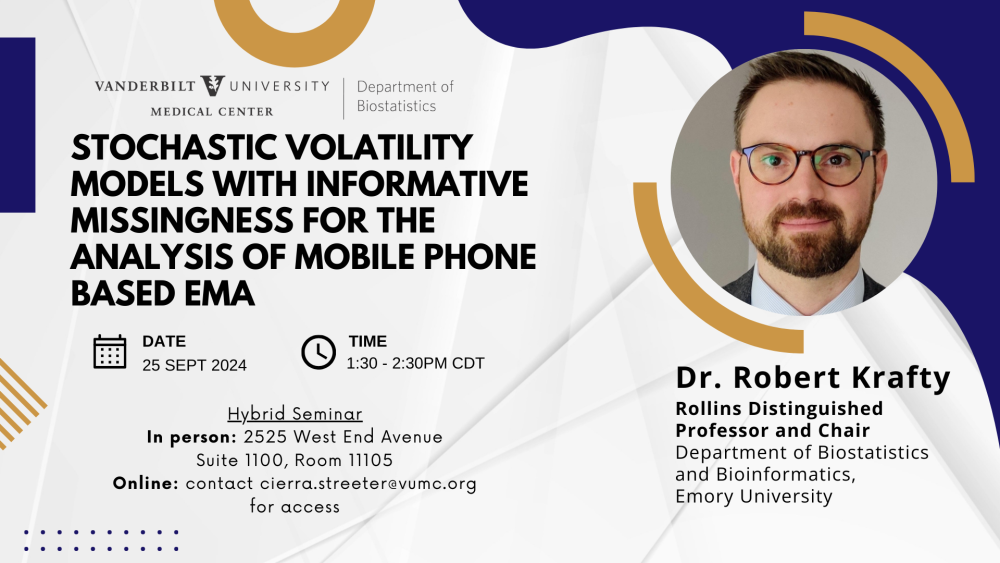
Abstract
Models that treat the variance of a time series as a stochastic process, known as stochastic volatility models, have proven to be an important tool for analyzing dynamic variability. Current methods for fitting and conducting inference on stochastic volatility models, which have been extensively studied within the context of financial time series, are limited by the assumption that any missing data are missing at random. With a recent explosion in technology to facilitate the collection of dynamic psychobehavioral data for which mechanisms underlying missing data are inherently scientifically informative, this limitation in statistical methodology also limits scientific advancement. In this talk, we discuss the first statistical methodology for modeling, fitting, and conducing inference on stochastic volatility with data that are missing not at random. The approach is based upon a novel imputation method derived using Tukey's representation, which utilizes the Markovian nature of stochastic volatility models to overcome unidentifiable components often faced when modeling informative missingness in other settings. This imputation method is embedded within a new conditional particle filtering with ancestral sampling (CPF-AS) procedure that accounts for variability in imputation to formulate a complete particle Gibbs sampling scheme. The method is motivated by the analysis of ecological momentary assessment (EMA) data and its use is illustrated through an analysis of mood and affect reported through a cell phone application by an individual being monitored after surviving a suicide attempt.
Sign up to meet with Dr. Krafty after the presentation here.
Robert Krafty, PhD, is the Rollins Distinguished Professor and Chair of the Department of Biostatistics and Bioinformatics at Emory University.